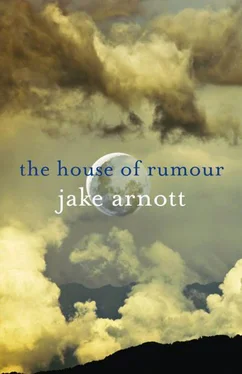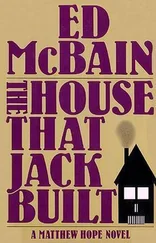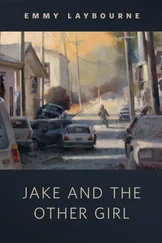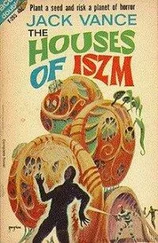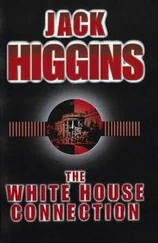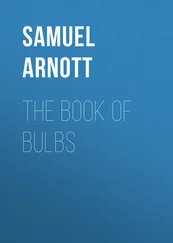Cato opened his eyes and found that they were filmed with tears. A single drop warmly traced his cheek. Yes, he thought, of course. All this madness made some kind of sense. Everything flipped over with a complete change of polarity. The world turned upside down in a geomagnetic reversal. He closed his eyes once more and felt that calm shadow cool his mind. He thought of what it was like to see the darkness. He saw the darkness. And he saw that it was good. Yes. Black people belonged on the earth. It was the white folks who were the aliens. The meeting was coming to its end in a cacophony of scraping chairs. Cato wiped his face with his handkerchief and stood up.
Even Jimmy noticed a change in him as they walked back to the boarding house.
‘You okay, man?’ he asked as they reached the front door.
‘Tired, is all,’ replied Cato.
‘Sure. Well, we’ll talk soon, yeah?’
Cato nodded and shook Jimmy’s hand.
Back in the room Cato switched on the light, stripped down to his underwear and got into bed. The bare bulb hurt his eyes but he wanted to finish the story.
Westward was the Hermit’s journey along Hollywood Boulevard. By four in the afternoon he would reach St Thomas the Apostle Episcopal church. The Temple of Doubt. After Judas, the Traitor, the Hanged Man, Thomas was the greatest disciple. The patron saint of uncertainty, this great principle that now even the scientists know governs our puny universe. The humans think that they want belief; Thomas preaches that what they need is incredulity. Enlightenment on a need-to-know basis. Stick your finger in the wound. Then you might feel the pain of another. Compassion, the Hermit remembered: it means ‘to suffer with’.
By sundown they had reached the far end of the boulevard, where it began to snake and twist its way up through Laurel Canyon. The city fell away as the Hermit and his dog Sirius climbed the Hollywood Hills. A grid of lights stretched out below, an illuminated cage. Above, the celestial mechanics were firing up. The constellations began to bloom as man and dog followed the winding path to their base camp in the foothills. Treasure in the heavens, thought the Hermit. The Dog-Star rose on the eastern horizon and he pointed it out to Sirius. She let out a howl of salutation.
‘Yes,’ agreed the Hermit. ‘Home.’
They lived together in a wooden shack at the end of a footpath that cut through the brushwood. The Hermit lit an oil lamp and gathered together his equipment. From a Higher One who ran a junk shop in Santa Monica as cover, he had been issued with a Philco model 40-74T four-tube battery-powered radio set. He switched it on and as it warmed up he turned the dial until he found that particular band of pulsating static that he recognised as the native language of his home planet. He then began his nightly broadcast.
Cato got up and went to switch off the light. A trace of neon throbbed against the wall outside his window. He sat on the bed and smoked another cigarette. His last, he told himself. He might write to Sharleen, he thought. Maybe she would understand. Maybe she did already, in her own way. He could sleep now and not fear his dreaming. He silently thanked God or Allah or whoever for untying that knot of guilt in his gut. He stubbed out his cigarette and got back into bed.
Avenida 9 # 1580 esq. Calle 19
Miramar, Habana
Cuba
15 October 1958
Dear Larry,
Well, I finally met my father. Two days ago, at a party in Vedado for a man who had won the lottery. Such a frenzy of celebration around us that we scarcely had to worry whether or not the two of us had anything to congratulate each other about. This could have been a chance meeting, like everything else in life. The dancing and commotion granted us a sense of stillness, the loud music a moment of silence. For which I was thankful because I had no idea what to say to this man, nor him to me. He shook my hand and named himself as a trumpet blared behind us. People were spilling out onto the street, forming a procession down towards the sea wall, and we were swept along with it all.
Two cops on patrol near by were nervously fingering their holsters, ready to run if things got out of hand. One of the women approached them, explaining that this was a party, not a demonstration. Someone waved a 26 July Movement flag anyhow. The people are becoming bolder now, ready to take to the streets when the time comes. Civil unrest simmers beneath the surface, bubbling up in all sorts of peculiar ways. Last month there was an outcry when the fiesta for the Black Virgin of Regla was banned (her statue was stolen, and a rumour circulates that the authorities have substituted a fake one).
We found some space on the sidewalk, away from this improvised carnival, and as we struggled to converse we soon fell into a rhythm, with similar patterns of speech and diction. And it was as if we were mimicking each other’s gestures and affectations. We don’t look very much alike, my father and me, but it’s astonishing how much we share in mannerism. All the same tics and spasms of character: things one would think were socially learnt, habitual, are to be somehow found in the blood. And all at once I knew that it did not matter much what we really meant to each other. This simple familiarity suddenly made things easy between us.
It looked harder for the man who had won the lottery. He was greeting people with shouts of joy but I saw fear and panic in his eyes, an urgency in his loud insistence that he had known beforehand that his number was going to come up. This zealous belief in our own premonitions, as if we cannot bear for our will to be so diminished by such a random act. It is a disturbing notion that the most important moments of our lives, our greatest successes, are merely a matter of happenstance. As I turned to my newly found father I realised that I didn’t even owe the fact of my birth to him, just to the luck of the draw. The turn of the wheel. The odds of any particular individual’s existence are so narrow that it would be scarcely worth the gamble. It is enough merely to exist and to count our losses to the end. Perhaps that was what was troubling the man.
But I suspect he did not think like this at all. Nor did anyone else for that matter. Only myself, my head spinning like that helter-skelter helix of genetics. As we crossed the Malecón to the water’s edge, I slapped my father on the back and said: ‘Well, we won the lottery.’ He turned and frowned at me. Then smiled. Alien features forming reflective expressions of a curious remembrance. We went to sit on the sea wall and he told me a story.
Larry, I’m afraid this is going to be a long letter but I have much to tell (who was it who said, ‘I’m writing you a long letter because I don’t have time to write you a short one’?). But first let me congratulate you on your incredible novel. I finally got hold of a copy of American Gnostic when I got back from the sierra this year (there’s a bookstall just opened on the Plaza de Armas that stocks a good selection of American science fiction and usually has the latest edition of F&SF ). This is the best thing you’ve ever done. You’ve restored my faith in the genre. To be honest, I’ve become bored with so much SF lately, or disappointed (whatever happened to Heinlein? — all this quasi-fascist nonsense he’s writing now; when we first met him he was a libertarian socialist). Maybe I don’t need much speculative fiction at the moment when here everything and everyone is concerned with the future. But not in fantasy, rather in the real possibilities for radical change.
I’ve been all over the island in the last two years. In Guantánamo, helping to organise the railway workers, co-ordinating strike action in support of the Rebel Army in the hills. I was even in the Sierra Maestra, smuggling supplies from Santiago. I came back to Havana in late spring to rejoin the urban underground. The general strike of 9 April proved a complete fiasco with the loss of much of the leadership of all participating oppositional groups. Now we have to completely regroup the mass movements in the city, establish solidarity with the armed struggle and find a common strategy to defeat the dictatorship. At last the 26 July Movement is making constructive overtures to communists and the Marxist left. We’re re-establishing the Revolutionary Workers Party as a challenge to the Stalinists, forming workers’ committees and printing a newspaper once more.
Читать дальше
